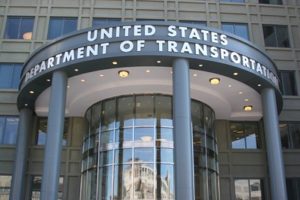Hyundai Whistleblower Represented by Constantine Cannon Gets $24.3 Million, First-Ever Award for Reporting Defects to Auto Safety Regulators

In the first-ever whistleblower award made to an auto-industry insider under the Motor Vehicle Safety Whistleblower Act, the U.S. National Highway Traffic Safety Administration (NHTSA) announced today that it will pay former Hyundai safety engineer Gwang Ho Kim $24.3 million for information he provided about safety defects in millions of Hyundai and Kia vehicles.
Kim supplied startling evidence to the government that Hyundai and Kia hid from regulators a critical engine defect that caused the automakers’ vehicles to stall at high speeds and catch fire. Relying on Kim’s information, NHTSA found that Hyundai and Kia delayed recalling over 1.6 million vehicles and provided inaccurate information about the defects to regulators. In November 2020, Hyundai and Kia agreed to pay combined penalties of $81 million (and up to $210 million), the largest penalties NHTSA has assessed against a carmaker in its history, in connection with the misconduct Kim exposed.
Under the new automotive whistleblower program, employees of auto manufacturers, parts suppliers, and dealers who report fraud are entitled to receive up to 30 percent of any collected monetary sanctions resulting from their claims. Kim’s award amounts to 30 percent of the $81 million the automakers paid to the government, the maximum allowed under the law.
Hyundai engineers discovered a defect affecting millions of Hyundai and Kia vehicles
 Kim, a Korean national, spent his 25-year engineering career at Hyundai. In 2015, Kim was a member of the automaker’s Quality Strategy team, which makes recall decisions.
Kim, a Korean national, spent his 25-year engineering career at Hyundai. In 2015, Kim was a member of the automaker’s Quality Strategy team, which makes recall decisions.
Kim was tasked with investigating the causes of seizures and stalling in their signature engine, the Theta II GDI. Kim and his team identified multiple design defects stemming from the fact that the automakers dramatically improved the power and performance of the Theta II GDI without similarly improving many of the engine’s components to withstand the increased strain.
Kim’s team recommended several design changes, which the automakers implemented. Kim’s team also recommended a full recall, which the automakers ignored.
Kim risked it all to bring to the government corporate records that exposed the automakers’ deceits
Instead, Hyundai falsely told U.S. regulators that a problem in the manufacturing process—in a single plant that affected a single model built during a short period of time—caused the engine failures.
Incensed that Hyundai lied and put millions of motorists at risk, Kim decided to tell NHTSA the truth. At his own expense, Kim flew to Washington in 2016 to deliver to NHTSA internal company records that demonstrated the automakers’ lies. Kim and his counsel cooperated extensively with government investigators for the next four years.
In the end, Kim systematically exposed the prevarications the automakers peddled and stopped their scheme to shift billions of dollars of costs to American consumers. Kim’s courage forced the automakers to recall over 1.6 million unsafe vehicles. And with his help, NHTSA forced Hyundai and Kia to pay record penalties for their misdeeds. These penalties include $81 million the automakers paid in penalties, $56 million they are spending on specified investments in safety infrastructure, and $73 million they will pay if NHTSA finds they failed to keep their promises.
Hyundai retaliated against Kim
Though he has been recognized for his courage, Kim’s journey was hardly easy. Through it, he sacrificed his livelihood, his career, and his reputation, as Hyundai and Kia pursued a campaign of terror against him in retaliation for his willingness to reveal the automakers’ deceits.
Hyundai’s actions were calculated to keep Kim—and future whistleblowers like him—quiet. Just weeks after he went to NHTSA, Hyundai fired Kim, falsely accusing him of breaching a confidentiality agreement. Hyundai then tried to stop Kim from speaking out about the automakers’ fraud. Upping the ante, Hyundai filed a criminal complaint against Kim and worked with local law enforcement to orchestrate repeated raids on his family home.
A Korean civil rights body ultimately found that Kim acted lawfully. Korean prosecutors dropped their baseless case against Kim. And Kim has continued to speak publicly about Hyundai and Kia’s misdeeds.
But the damage to Kim was profound. Kim has been unable to get another job, leaving his family without its primary source of income for years. His home was raided. And trumped-up charges tarred Kim’s reputation.
Auto-industry employees anywhere in the world can provide information to U.S. safety regulators about defects in vehicles
NHTSA paid Kim today’s record award under the Motor Vehicle Safety Whistleblower Act. The law creates a whistleblower reward program in the Department of Transportation (DOT) to pay awards to industry insiders who provide information to safety regulators about defects in vehicles. A whistleblower can receive a reward of 10 to 30 percent of any monetary sanctions over $1,000,000 the government imposes based on the information the whistleblower provides. The law also protects whistleblowers from retaliation.
 The Motor Vehicle Safety Whistleblower Act is modeled on other incentive programs, like the SEC’s whistleblower program, that pay tipsters to help federal regulators clamp down on scofflaws. These programs have been a success for consumers, investors, taxpayers, and others. The SEC reports that enforcement matters brought with information from whistleblowers have resulted in recoveries of more than $2.7 billion; the CFTC reports that 30-40% of its investigations involve a whistleblower component; and, the Department of Justice reports that nearly 80% of fraud recoveries in False Claims Act cases are in cases initiated by whistleblowers. Simply put, whistleblower reward programs work, and they can help make vehicles safer.
The Motor Vehicle Safety Whistleblower Act is modeled on other incentive programs, like the SEC’s whistleblower program, that pay tipsters to help federal regulators clamp down on scofflaws. These programs have been a success for consumers, investors, taxpayers, and others. The SEC reports that enforcement matters brought with information from whistleblowers have resulted in recoveries of more than $2.7 billion; the CFTC reports that 30-40% of its investigations involve a whistleblower component; and, the Department of Justice reports that nearly 80% of fraud recoveries in False Claims Act cases are in cases initiated by whistleblowers. Simply put, whistleblower reward programs work, and they can help make vehicles safer.
The auto-safety whistleblower program is unique among those in that it is exclusively focused on protecting public safety. Auto-industry whistleblowers, anywhere in the world, can protect the public by bringing to NHTSA critical information about disastrous safety defects. Kim’s case makes that clear. And so does the Takata calamity, in which Constantine Cannon represents two brave whistleblowers, including a chemical engineer who warned executives that people would be killed if the airbag manufacturer used an airbag propellant that could blow up uncontrollably.
The auto-safety whistleblower program is at a crossroads
Kim’s award is the first one NHTSA has ever made under its whistleblower program. That’s notable, because Congress created the program nearly six years ago, in December 2015.
While Congress gave NHTSA until June 2017 to make rules for the program, NHTSA did not meet that deadline. This year, though, NHTSA announced that it will propose rules for the whistleblower program by January 2022. NHTSA also launched a website that explains to would-be whistleblowers how to report suspected safety violations, what to do if they’re retaliated against, and how to apply for monetary awards. Combined with Kim’s precedent-setting award, these efforts suggest NHTSA is serious about bringing the whistleblower program to life.
But if NHTSA wants to encourage insiders to take serious risks to protect the public, like Kim did, it needs to take every opportunity to show that whistleblowers are central to the agency’s enforcement efforts. Equally important, NHTSA must make clear program rules that plainly state when a qualifying whistleblower will—and will not—get an award. Until the risks of coming forward are clear to auto-industry employees, potential whistleblowers are unlikely to report safety defects that imperil us all.
Kim’s award is important for the automotive industry as a whole. With it, NHTSA has sent a clear message to industry employees everywhere: If your employer sells unsafe vehicles in the United States, NHTSA wants to hear from you, NHTSA will protect you from retaliation, and NHTSA will pay you a financial reward for exposing misconduct.
READ MORE:
- Auto Safety – Motor Vehicle Safety Whistleblower Act
- Press Release: Constantine Cannon Announces First-Ever NHTSA Whistleblower Award In Hyundai-Kia Engine Defect Case
- South Korea Orders Major Hyundai, Kia Recall After Whistleblower Report
- Whistleblower Reward Laws
- Motor Vehicle Safety Whistleblower Incentives and Protections
- Whistleblower FAQs
- I Think I Have a Whistleblower Case
- Contact us for a confidential consultation
Tagged in: Auto Safety, CC Lawyers, Importance of Whistleblowers, Whistleblower Case, Whistleblower Rewards,